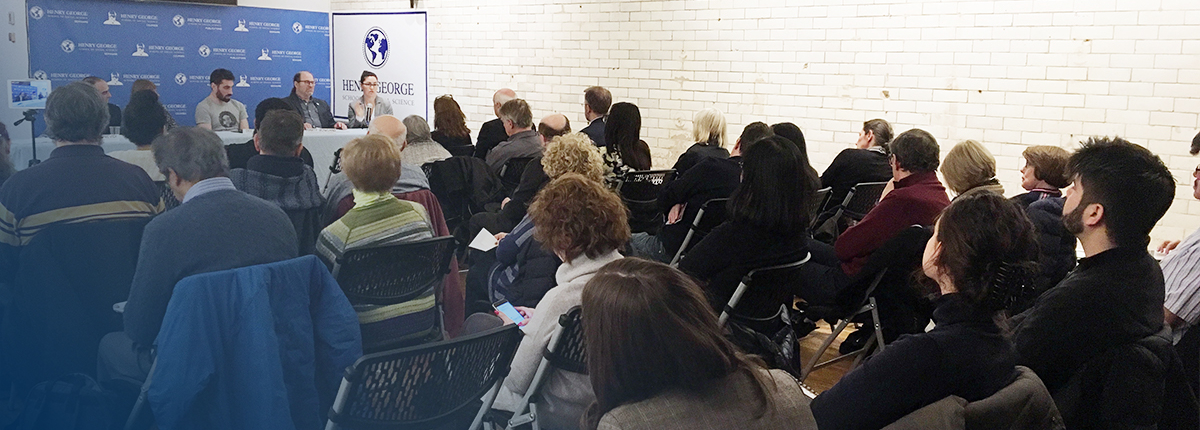WELCOME TO OUR FREE TRADE SERIES
Henry George called it “robbery by tariff.” In a spirited defense of free trade over protectionism, published in 1886, George scoffed at those who thought that “steel-plated” coasts and not open economic interchanges were the best protection for American prosperity and freedom. More than a century later, the debate over the political and economic issue is as warm as ever.
The Henry George School of Social Science is pleased to offer a free series of talks on topics of vital concern to American wallets and American well-being. Speakers offer differing (and often sharply clashing) perspectives on free trade and protectionism, and how those issues play into the bigger question of what “globalization” means in an increasingly interdependent yet still-fractured world.
 Free Trade and Globalization with Fred Harrison
Free Trade and Globalization with Fred Harrison
In this video, renowned Georgist Fred Harrison offers his take on globalization, which according to him is nothing new and nothing more than free trade. He explains the phenomenon by the natural propensity of human societies to interact and trade freely, a natural right dating back to neolithic times. It was not created by States and therefore should remain unhindered.
Blaming globalization for our economic woes only allows political elites to distract public opinions away from the real causes and delays badly needed fiscal reforms.
The root cause of our economic problems, as Harrison claims is our debilitating tax system that destroys employment opportunities and forces people to migrate in search of better opportunities abroad. This in turn generates resentment and rejection from host countries.
Therefore, the solution lies not in self-imposed austerity but in a better and fairer tax system that collects economic rent as envisioned by a long line of classical economists, from Adam Smith to Henry George. A tax system with the potential to motivate entrepreneurship, empower the working class and reduce income inequality.
Steve A. Sklar – Free Trade versus Protectionism
Steve Sklar, Attorney-at-Law, covers the salient points in Protection or Free Trade, Henry George’s second-best-known book. The book provides George’s compelling thoughts not only on the fundamental defects of protectionism, but on the conditions which (even today) give rise to its perennial popularity. George showed us why free trade, as commonly enacted, is defective, and must be connected to the larger social issue of private property in land. Steve describes and improves upon George’s thoughts on immigration, and reflects on how George’s observations on trade policy from the perspective of the helpless laborer might account for the otherwise mystifying election of a powerful landlord.
Alan Tonelson – Free Trade and Globalization
Alan Tonelson is a member of the Board of Directors of the Henry George School of Social Science, founder of RealityChek, former associate editor of Foreign Policy magazine, and long-time member of leading U.S. think tanks. He is the author of The Race To The Bottom: Why A Worldwide Worker Surplus And Uncontrolled Free Trade Are Sinking American Living Standards. That title speaks volumes about Mr. Tonelson’s forceful views, but he still has a lot more to say about free trade and protectionism.


